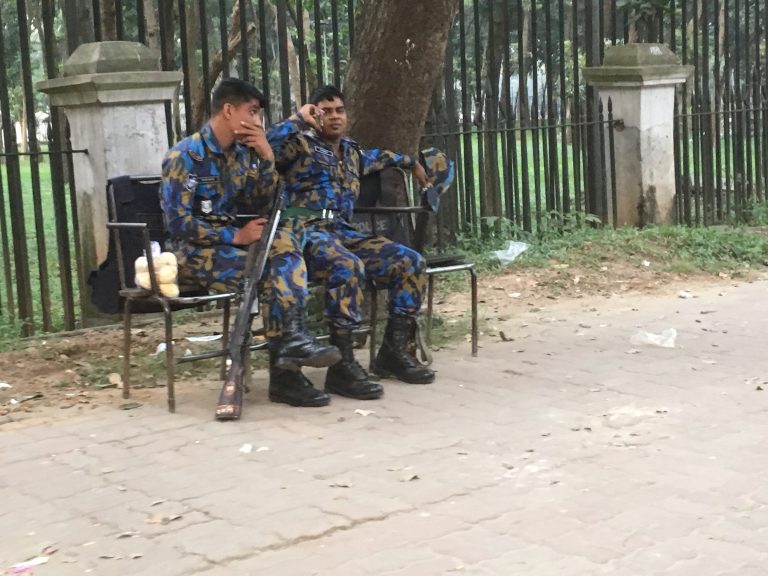“The July 1st [2016] massacre at the Holey Artisan Bakery in capital city of Bangladesh, took many by surprise because the attackers came the country’s small, privileged elite. Sharaad Kuttan speaks to Abak Hussain, Op-Ed editor of the Dhaka Tribune to get a better understanding of the context of the attack, and what social tensions it springs from.”
I don’t remember knowing much about Bangladesh until I picked up Lawrence Lifschultz’s “Bangladesh: The Unfinished Revolution” in the mid-80s while browsing the shelves of my uncle Dominic’s library. Apart from the occasional headline, the country remained at the periphery of my imagination, lying just east of India. It wasn’t until the influx of Bangladeshi migrants to the Klang Valley and the inevitable personal entanglements, did I begin to consider Dhaka as a city I might visit.
In November of 2016, thanks largely to Eddin Khoo, I found myself in capital for the Dhaka Lit Fest, the star of which was Noble prize winner, V.S. Naipaul captured in this interview I did with then colleague Azura Rahman, Ticket To Ride. There I met Abak Hussain, who I interviewed, visiting him at his office. The Lit Fest, held on the wonderfully serene grounds of the Bangla Institute, an oasis of calm in one the planet’s densest cities, was a chance to meet and understand the country first hand: from the cavernous exhibition space devoted to the 1971 war of national liberation to facing its traffic jams. Eddin, who was invited to the Festival and through whom I had hoped would introduce me the cities literary society, did not in fact come. So I was left to my own devices. It was only 3 years later, in 2019 when Dhaka Lit Fest included me in its programme – sandwiched between a Bengali novelist Shankar and Shashi Tharoor in their alphabetical listings.
